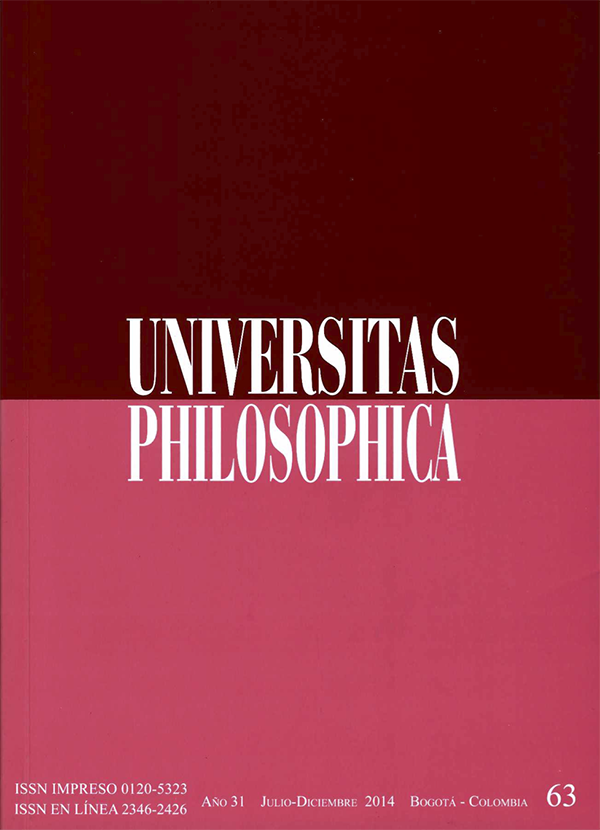Abstract
The aim of this paper is to account for Michel Henry’s critique of Merleau-Ponty as regards the own body and the flesh. To that end, I start by displaying Merleau-Ponty’s position on these matters. Then I present Henry’s critique, which are focused on Phenomenology of Perception and The Visible and the Invisible. After that, I consider these objections in general and concentrate on the meaning of Merleau-Ponty’s latest work on Descartes’ dioptric, in particular. Finally, I argue that his unfinished work opens more fruitful channels of dialogue than the works criticized by Henry.
This journal is registered under a Creative Commons Attribution 4.0 International Public License. Thus, this work may be reproduced, distributed, and publicly shared in digital format, as long as the names of the authors and Pontificia Universidad Javeriana are acknowledged. Others are allowed to quote, adapt, transform, auto-archive, republish, and create based on this material, for any purpose (even commercial ones), provided the authorship is duly acknowledged, a link to the original work is provided, and it is specified if changes have been made. Pontificia Universidad Javeriana does not hold the rights of published works and the authors are solely responsible for the contents of their works; they keep the moral, intellectual, privacy, and publicity rights.
Approving the intervention of the work (review, copy-editing, translation, layout) and the following outreach, are granted through an use license and not through an assignment of rights. This means the journal and Pontificia Universidad Javeriana cannot be held responsible for any ethical malpractice by the authors. As a consequence of the protection granted by the use license, the journal is not required to publish recantations or modify information already published, unless the errata stems from the editorial management process. Publishing contents in this journal does not generate royalties for contributors.


